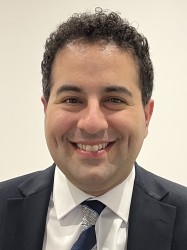BibTex format
@article{Ianiro:2020:10.1136/gutjnl-2020-321829,
author = {Ianiro, G and Mullish, BH and Kelly, CR and Kassam, Z and Kuijper, EJ and Ng, SC and Iqbal, TH and Allegretti, JR and Bibbò, S and Sokol, H and Zhang, F and Fischer, M and Costello, SP and Keller, JJ and Masucci, L and van, Prehn J and Quaranta, G and Quraishi, MN and Segal, J and Kao, D and Satokari, R and Sanguinetti, M and Tilg, H and Gasbarrini, A and Cammarota, G},
doi = {10.1136/gutjnl-2020-321829},
journal = {Gut},
pages = {1555--1563},
title = {Reorganisation of faecal microbiota transplant services during the COVID-19 pandemic},
url = {http://dx.doi.org/10.1136/gutjnl-2020-321829},
volume = {69},
year = {2020}
}

